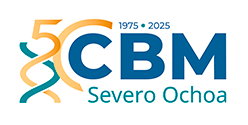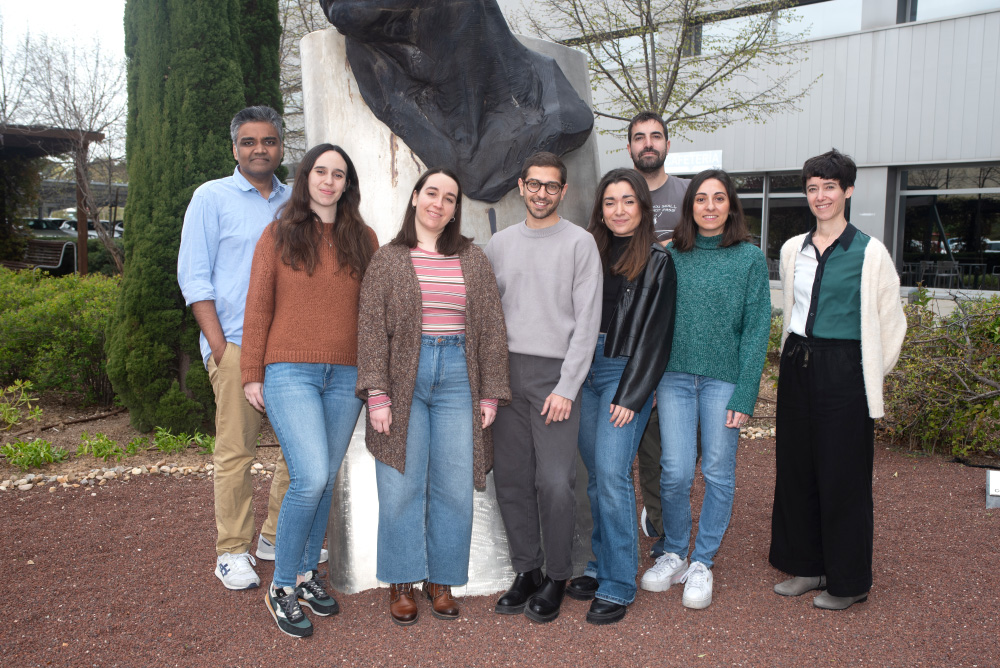Scientific Program
Genome dynamics and function
RESEARCH GROUP
Genome instability and cancer predisposition

Aura Carreira Moreno
Genome stability is essential for survival and is also critical to prevent human diseases including cancer.
BRCA2 is a breast cancer susceptibility protein that preserves genome integrity through its role in DNA repair via homologous recombination. Using proteomics screens and other “”omics”” data together with information from variants of BRCA2 identified in patients as a genetic tool, we hope to shed light on the link between BRCA2 mutations, genome instability, and cancer predisposition.

Research
Genome stability is essential for survival in every organism allowing cells to faithfully transmit genetic information from generation to generation. Preserving genome stability is also critical to prevent several human diseases including cancer.
Our lab interrogates the cellular mechanisms (DNA repair pathways) deployed to preserve genome integrity with a particular focus on the high-fidelity DNA repair mechanism homologous recombination (HR) and the breast cancer susceptibility protein BRCA2 involved in this process, as a model.
Mutations in BRCA2 predispose to breast and ovarian cancer with high penetrance and they are also linked to other types of cancer such as prostate and pancreatic cancer as well as the cancer-predisposing syndrome Fanconi anemia. Thus, with this model, we hope to shed light on the link between BRCA2 mutations, genome instability, and cancer predisposition.
General questions:
What are the different mechanisms that BRCA2 (and its partner proteins) use to promote HR in the context of DNA double-strand breaks (DSB) and replication stress?
How are the chromosome integrity mechanisms of the cell coordinated through the cell cycle?
Which mutations in BRCA2 predispose to cancer and why?
Our tools:
We use a combination of biochemistry, cell biology, “omics” techniques, and BRCA2 missense variants of unknown significance (VUS) identified in breast cancer patients as a genetic tool.
Group members

Aura Carreira Moreno
Lab.: 206 Ext.: 4497
acarreira(at)cbm.csic.es

Laura Pérez Gómez
Lab.: 206 Ext.: 4827
laura.perez(at)cbm.csic.es

Lucía Álvaro Aranda
Lab.: 206 Ext.: 4827
lucia.alvaro(at)cbm.csic.es

Irene Hernando Herrera
Lab.: 206 Ext.: 4827
irene.hernando(at)cbm.csic.es

Sree Rama Chaitanya Sridhara
Lab.: 206 Ext.: 4827
srchaitanya(at)cbm.csic.es

Natividad Bellido Carreras
Lab.: 206 Ext.: 4827
nbellido(at)cbm.csic.es

Juan Carlos Martínez Cañas
Lab.: 206 Ext.: 4827
juan.martinez(at)cbm.csic.es
Selected publications
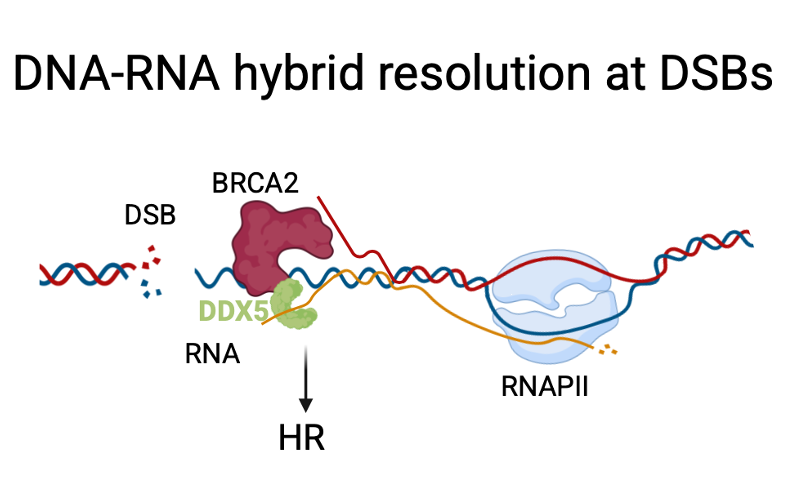
BRCA2 promotes DNA‐RNA hybrid resolution by DDX5 helicase at DNA breaks to facilitate their repair
Gaetana Sessa et al.
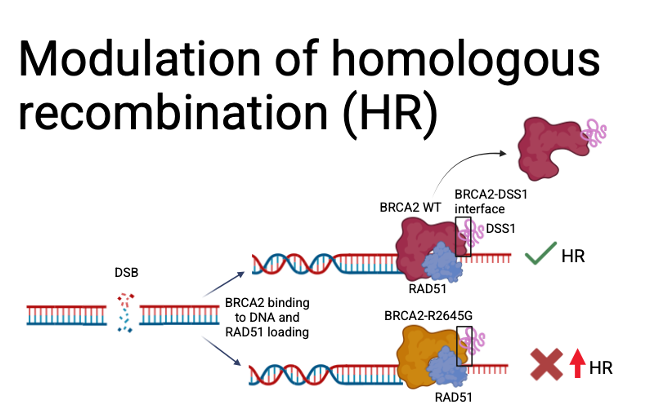
The BRCA2 R2645G variant increases DNA binding and induces hyper-recombination
Lucia Alvaro-Aranda et al.
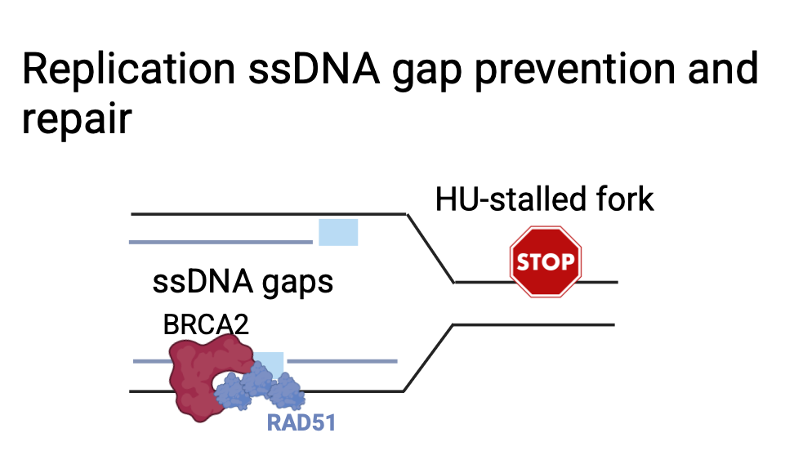
Replication gap suppression depends on the double-strand DNA binding activity of BRCA2
Domagoj Vugic et al.
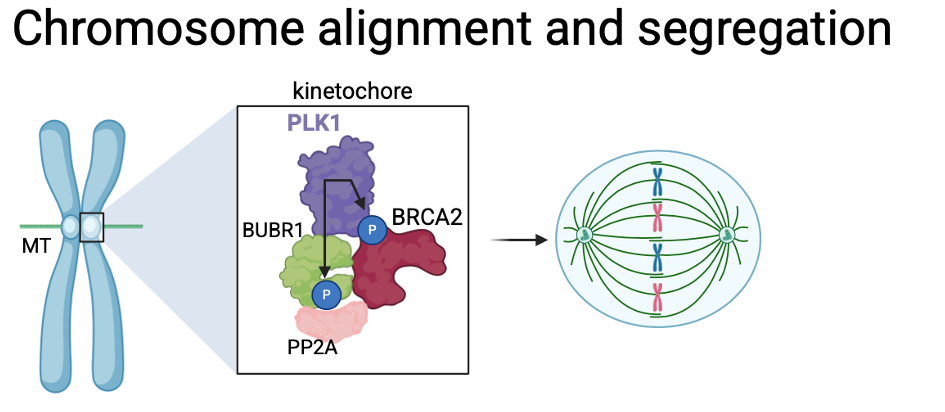
Proper chromosome alignment depends on BRCA2 phosphorylation by PLK1
Ehlen et al.
